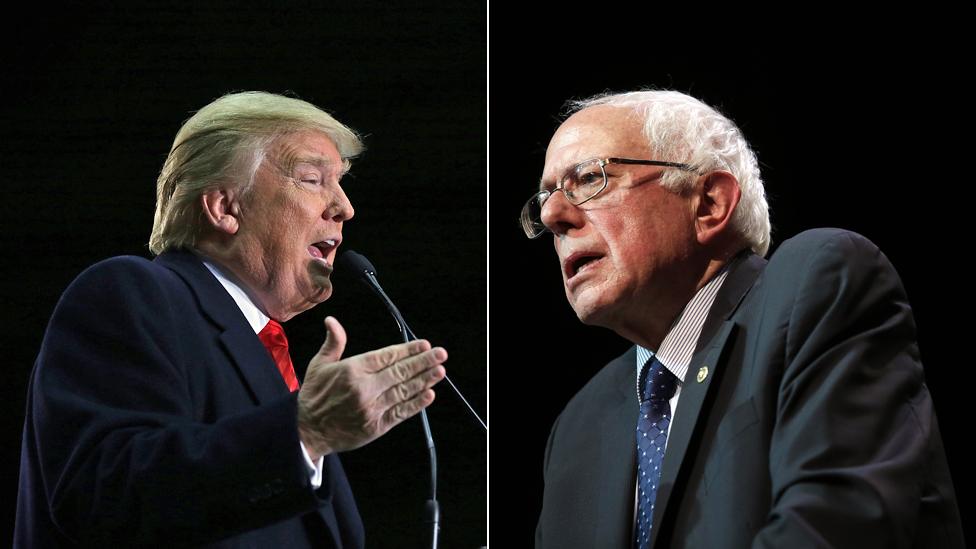
Senator Bernie Sanders (I-Vt.) expressed his concerns about President Donald Trump’s recent call for the impeachment of a federal judge, emphasizing the dangerous precedent such actions could set for the country.
In a Tuesday appearance on CNN's "The Source," Sanders responded to Chief Justice John Roberts’ rare public statement against Trump’s suggestion, stating that Roberts likely understood the potential danger of a president who does not respect the Constitution and seeks to expand his own powers.
Sanders, who has been a vocal critic of Trump throughout his presidency, warned that the actions taken by the president could undermine the core principles of American democracy and the constitutional system of checks and balances.
The controversy began after President Trump called for the impeachment of U.S. District Judge James Boasberg, who ruled against his administration in a high-profile deportation case. In his Truth Social post, Trump referred to Judge Boasberg as a "troublemaker and agitator," further fueling his criticism of the judiciary.
Trump justified his call for impeachment by stating, "I’m just doing what the VOTERS wanted me to do," continuing his claims that Boasberg, along with other judges, was part of a group of “Crooked Judges” working against his administration.
The deportation case, in which Boasberg ruled against Trump’s efforts to swiftly deport Venezuelan migrants who had been labeled as gang members, became a flashpoint for Trump’s frustrations with the judiciary. In his statement, Trump called for the judge's removal, reiterating his belief that many members of the judiciary were biased against him and his administration’s policies.
Chief Justice Roberts pushed back against Trump’s comments in a rare public statement on Tuesday, asserting that impeachment was not an appropriate response to a disagreement over a judicial decision. Roberts stated, "For more than two centuries, it has been established that impeachment is not an appropriate response to disagreement concerning a judicial decision.
The normal appellate review process exists for that purpose." His comments were seen as a clear defense of judicial independence and a warning against attempts to undermine the judicial branch of government.
Senator Sanders, responding to Roberts' statement, echoed the Chief Justice’s concerns, emphasizing the dangerous implications of a president who seeks to expand his own authority at the expense of constitutional principles.
"I don’t know Roberts all that well, I’m not a great fan of his court, but I think he does understand, I suspect, the danger of a president who does not respect the Constitution of the United States and wants more and more power for himself," Sanders told CNN’s Kaitlan Collins. Sanders stressed that the president's actions, including his repeated attacks on judges and the judiciary, could erode the foundations of the democratic system.
Sanders has long been a critic of Trump’s attempts to centralize power in the executive branch, often arguing that the president's disregard for the rule of law and the separation of powers posed a serious threat to American democracy. He pointed out that Trump’s efforts to interfere with judicial decisions, as seen in his calls to impeach judges who disagree with him, were part of a broader pattern of encroachment on the constitutional responsibilities of other branches of government.
"Look, if somebody is a corrupt judge, that person can and should be impeached, but not because you voice an opinion," Sanders said. He stressed that impeachment should be reserved for serious ethical violations, not for judges simply making decisions that go against the president's wishes.
Sanders also warned that Trump’s rhetoric, which often targets judges who disagree with him, could undermine public trust in the judicial system and the ability of the courts to function independently.
The debate over judicial independence is a critical one in the context of the U.S. Constitution. The framers of the Constitution designed the judiciary to be an independent branch of government, separate from both the executive and legislative branches.
This system of checks and balances was intended to ensure that no single branch of government could dominate the others, thus preserving democratic governance.
Impeachment is a rare and serious action, reserved for cases of misconduct, corruption, or criminal activity by federal officials, including judges. For many legal experts and politicians, the suggestion that a judge should be impeached simply for ruling against the president sets a dangerous precedent.
Such actions could lead to the politicization of the judiciary, where judges feel pressure to rule in ways that align with the political views of the president, undermining their independence and the fair administration of justice.
The tension between Trump’s administration and the judiciary has been a recurring theme throughout his presidency, with the president often lashing out at judges who ruled against his policies. From his travel ban to immigration policies and beyond, Trump repeatedly attacked judges who disagreed with him, calling them “biased” or “activist judges.”
His call for impeachment of Judge Boasberg is the latest in a series of actions that critics argue are designed to diminish the power and independence of the judicial branch.
Sanders’ comments also highlight the broader constitutional issue at play: the importance of maintaining the separation of powers between the executive, legislative, and judicial branches. By pushing for the impeachment of a judge who simply disagrees with him, Trump is challenging the independence of the judiciary and, by extension, the system of checks and balances that underpins the U.S. government.
“The president is trying to encroach on the constitutional responsibilities and spending powers of Congress, and now he’s going after the courts,” Sanders warned. He pointed out that the judiciary is a co-equal branch of government that must be allowed to function without interference from the executive branch.
Attempts to undermine the independence of the courts, he argued, are a direct challenge to the democratic principles enshrined in the Constitution.
The impeachment of judges is a serious process that requires a clear and compelling reason for action, such as misconduct or ethical violations. It is not intended to be a tool for political retribution against judges who make rulings that are unpopular with the president or other political leaders.
Sanders cautioned that if impeachment is used as a political weapon against judges, it could set a dangerous precedent that undermines the integrity of the judicial system.
Senator Sanders’ remarks reflect growing concerns about the erosion of democratic norms under the Trump administration. From attacks on the judiciary to efforts to undermine the checks and balances system, many lawmakers and legal experts fear that the president’s actions are setting a dangerous precedent for future leaders.
The independence of the judiciary is a cornerstone of American democracy, and any efforts to weaken or politicize the courts could have long-term consequences for the rule of law and the preservation of democratic values.
As the debate over judicial independence continues, it is clear that maintaining the separation of powers and respecting the Constitution are essential to the health of American democracy. Sanders and others have called on Congress to ensure that the checks and balances system is upheld and that the judiciary remains free from political interference.

The actions of the Trump administration, particularly the president’s calls to impeach judges who oppose him, have raised important questions about the future of American democracy and the role of the judiciary in safeguarding the rights and freedoms of all citizens.





